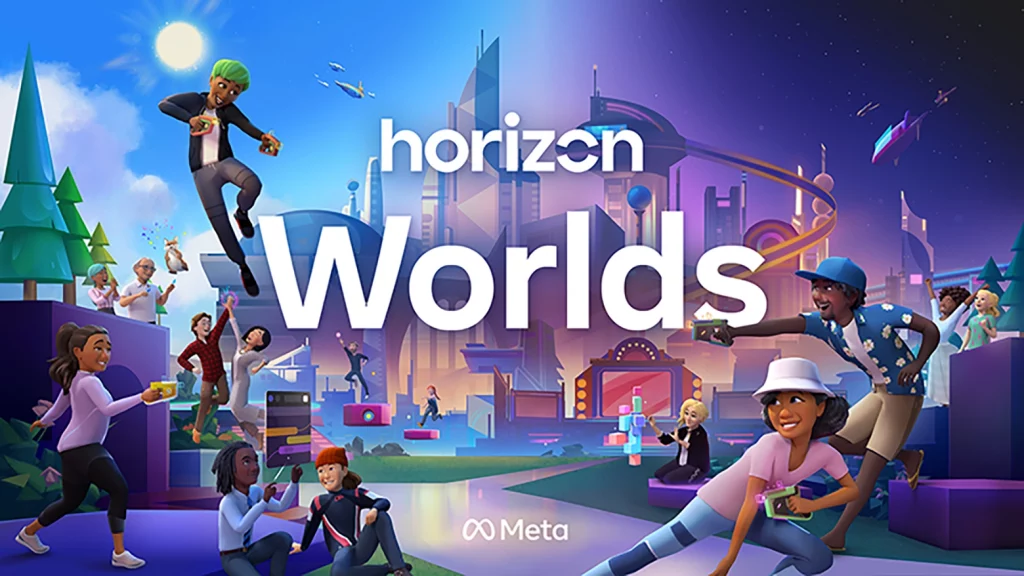Since the CEO of Meta (formerly Facebook), Mark Zuckerberg, announced the launch of the metaverse in 2021, many company employees have expressed concerns about the practicality and security of the project. Although Facebook continues to perform well as a social media platform, Zuckerberg’s passion project is proving itself more trouble than it may be worth.
However, many believe that the metaverse will be where users can work and play. Tech giants like Meta envision the metaverse, changing how we work as a society. They hope that people can attend meetings, interact with co-workers, and collaborate on projects in a virtual space from anywhere in the world.
But, many people do not share that vision. In fact, many employers, employees, and even employees of Meta have valid concerns about the metaverse.
What is the Metaverse?
In a somewhat misguided attempt to stay relevant and innovative in the modern world, Zuckerberg launched an online world called the metaverse. The core concept behind the metaverse is this: people using virtual reality technology to meet in cyberspace. The metaverse’s exact function remains unclear, although it’s advertised as the next generation’s social platform.
In the metaverse, online players can customize a poorly-rendered avatar, which they then use to navigate the online space while wearing virtual reality gear. Although Zuckerberg claims that this will become a revolutionary platform in the future, many employees, shareholders, and consumers alike have expressed disappointment in its functionality and design.
Data Collection & Privacy
A metaverse survey of 1,500 employees and employers in the U.S. 63% of employees are concerned about their employer collecting their data in the metaverse. While another 51% were concerned about real-time screen monitoring by employers.
It’s widely known that Facebook collects data from its users, and ever since a privacy breach in March of 2018, users have been wary of Facebook’s privacy practices. Facebook collects user data, which it then uses to refine advertisements and tailor content. Employees are concerned that the metaverse and employers will take this to the next level, and understandably so.
Lack of Moderation
The metaverse currently doesn’t offer any moderation, security, or censorship of any kind. Kabuni Nina Jane Patel, a researcher for the metaverse, was sexually harassed on the metaverse recently. Within just 60 seconds of logging into “Horizon Worlds,” a subspace of the metaverse, Patel was confronted by a group of players who shouted derogatory comments and proceeded to assault her character onscreen.
This is an excellent example of why there needs to be some level of moderation in the metaverse. The protection of users from harmful comments and actions should be prioritized. If the metaverse wants to function essentially as an MMORPG, it should implement the same moderation methods as other MMORPGs.
If Meta employees themselves are afraid to use their own software, it isn’t a good indicator for its long-term success for other businesses and their employees. Rather than focus on the safety and entertainment of the players, the metaverse seems more interested in advertising. These irresponsible practices have put a bad taste in employees’ mouths.
Underdeveloped Software
There isn’t actually that much to do inside the metaverse. Despite Zuckerberg’s claims that it’s a social environment designed for fun, players are limited to underdeveloped mini-games and must still physically move around to enjoy the experience fully. This is very disappointing for a virtual world that’s advertised as limitless.
Inconsistent Design
Below is an advertisement for Horizon Worlds from 2021, featuring some colorful, well-rendered characters enjoying the platform. This image looks promising and generated some interest when it was first released.

Unfortunately, it seems that this advertisement was very misleading. In August 2022, Zuckerberg announced that he was launching Horizon Worlds in France and Spain, posting this image to Facebook:

After posting this, Zuckerberg was ruthlessly bullied online for the poor quality of the graphics shown in the metaverse. When compared to the images Meta uses to advertise Horizon Worlds, this looks like an entirely different game.
At this point, the metaverse had also been in development for a year, so the quality was expected to improve, not worsen. Meta is a multi-billion dollar company, and yet the metaverse lacks thoughtful design and imagination.
Employees and consumers alike are finding it difficult to maintain confidence in Zuckerberg’s vision when the advertised content is so different from what users actually get. It creates a lack of trust and could be labeled as false advertising.
Competitive Industry
The metaverse is leaning hard into the video game industry, a constantly expanding, highly saturated market filled to the brim with actual industry experts. Although Zuckerberg’s creation of Facebook proved an enormous success, the metaverse is an entirely different beast.
If Zuckerberg wishes to set foot in video game territory, he must deliver a product that can reasonably compete within the industry, and the metaverse can’t. Triple-A games, pioneers and leaders of the industry, require large budgets and specialized teams. Game companies need the aid of graphic designers, programmers, software developers, voice actors, and more to succeed.
The metaverse fails to deliver anything unique that sets it apart from the competition in the entertainment industry. Its design is lackluster at best and uncanny at worst. There are no distinct features that make it attractive to consumers. If players want to play an online MMORPG, there are countless better options to choose from with better graphics and compelling stories.
Unrealistic Expectations
One problem many employees and consumers have with the metaverse is its unclear target audience and overall purpose. Walmart recently announced they would use the metaverse to improve virtual shopping experiences for consumers, but their methods were confusing and unnecessarily tedious. They’ve also expressed an interest in using the metaverse to sell NFTs, a controversial file type with a detrimental environmental impact.
You can find footage of their demonstration here. During the demonstration, we see our character navigating a supermarket with a shopping cart, accompanied by an AI employee who incessantly provides advice and suggestions. The environment is gray and dark, somehow even more dreary to look at than an actual Walmart.
Additionally, users rely on virtual reality to use this program, meaning they’ll have to physically perform actions such as reaching items off shelves and walking around. During the demonstration, it is unclear whether the player is in their vehicle, home, or store, making its usefulness questionable.
It’s generally easier and less time-consuming to simply click some buttons on your phone and have groceries delivered or set aside for pickup. In no way does the metaverse actually optimize the shopping experience. Instead, the software looks clunky and acts awkwardly and robotic. Even shareholders are uncertain whether Zuckerberg intends to use the software for everyday VR users or for corporate ads and product placements.
Overly Corporate Tone
Rather than focus on establishing and fostering authentic connections between users, the metaverse has a heavily corporate tone which has been described by many as “dystopian” and “tone-deaf.” Despite the metaverse launch having such poor reception, Zuckerberg continues to double down, ignoring the needs of his potential customers, and that’s just bad business.
Stocks & Staff Suffering
Since the rebranding from Facebook to Meta in 2021, Meta has suffered a 25% decline in share prices. In just one day, Meta lost a total of $230 billion, its most significant loss as a company to date. This loss was attributed to the rebrand and Zuckerberg’s fixation with the metaverse.
Employees at Meta have expressed severe concern about Zuckerberg’s overzealous enthusiasm about the metaverse. Some employees complain it’s “the only thing [he] wants to talk about” and that he’s been distracted from his other responsibilities, favoring progress on the metaverse.
Shareholders of Meta are furious with Zuckerberg for continuing to pour investment money into the metaverse. Meta has already lost $9.4 billion to metaverse development, and they’re projected to lose even more. Financially, the metaverse seems to spell doom for Meta as a company.
Will the Metaverse Be a Success?
Meta employees are right to voice concerns over this project’s practicality, ethics, and quality. These employees echo the concerns of other companies’ employees who have been polled about using the metaverse at work. Zuckerberg has provided little to no reassurance to the public over complaints and suggestions, and as a result, his company is suffering. Although Facebook was a vastly successful social media platform, the metaverse might just be the downfall of Zuckerberg’s company.












Pingback: Run Your Online Enterprise Following these Cutting Edge Tactics To Make You Invincible ·
Pingback: Here are the Major Employee Concerns About the Metaverse – Joseph O'Dierno Buffalo